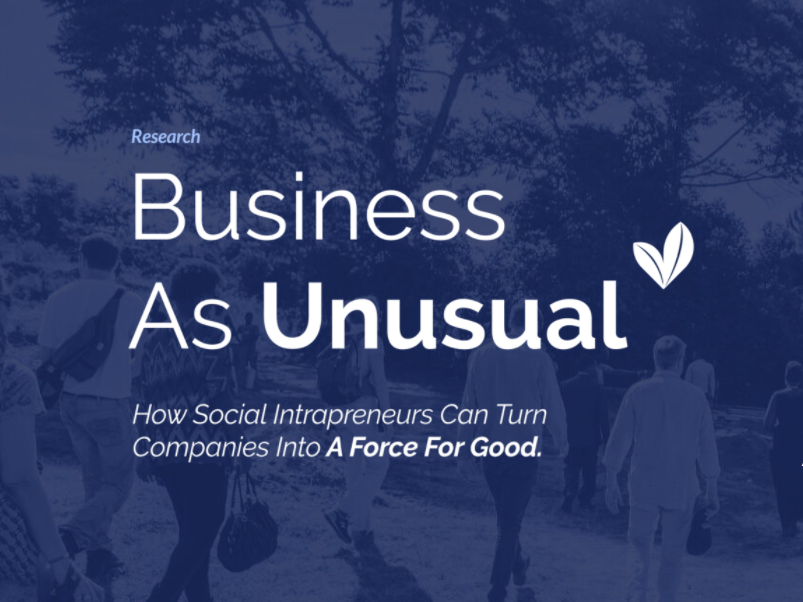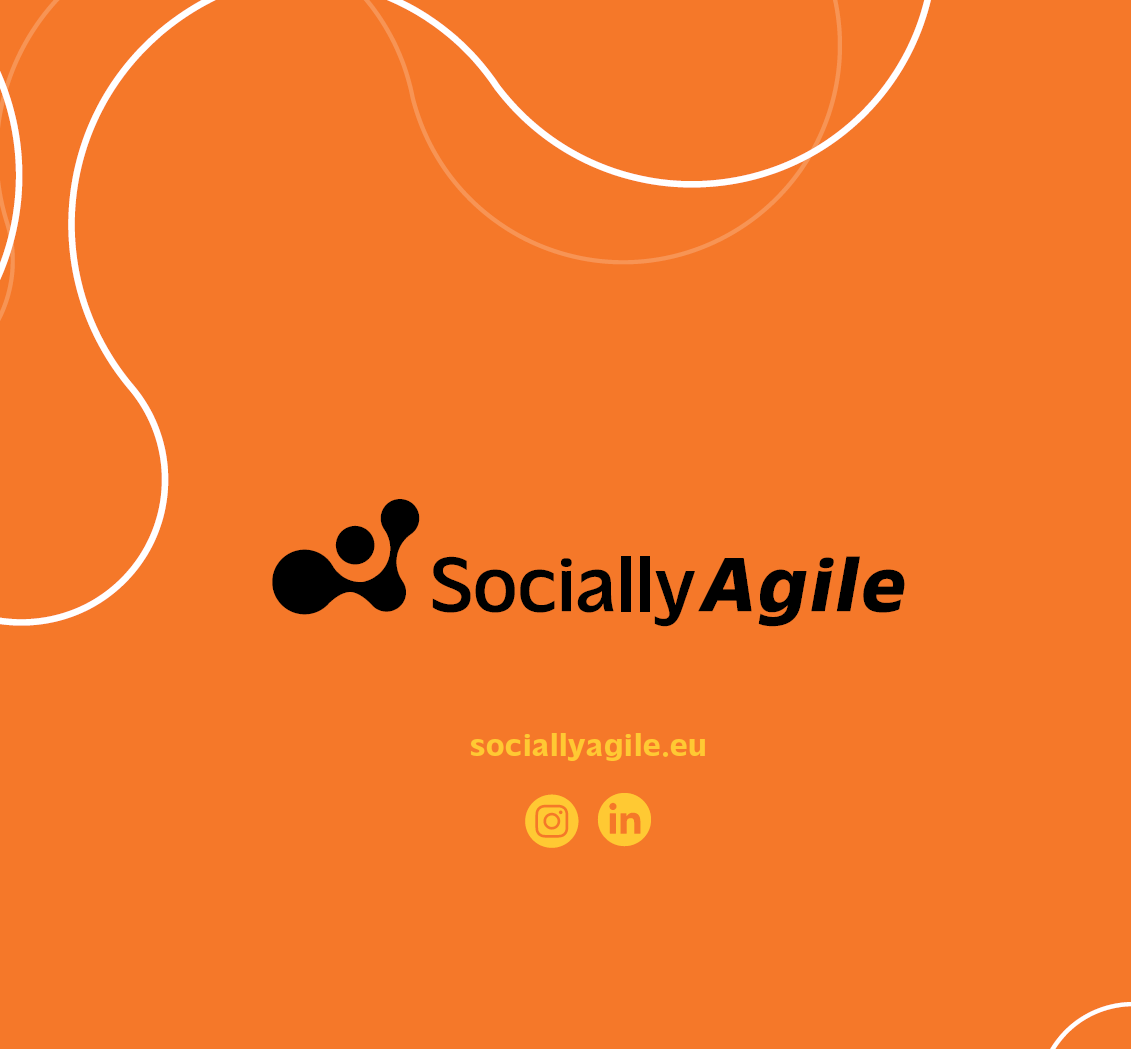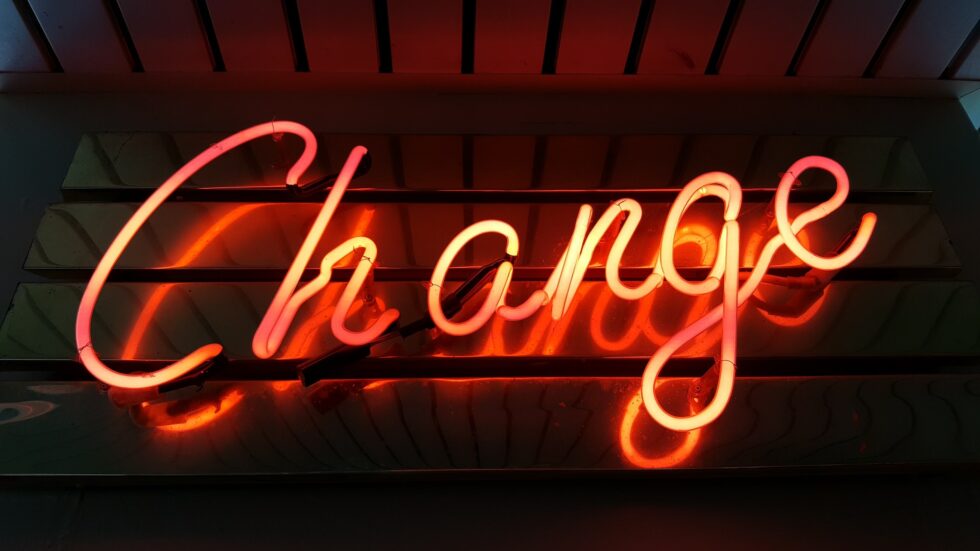In order to achieve the SDGs, it is very clear that we need an economy built on the principles of accountability, inclusivity, and sustainability. We believe that companies can remodel business into a force for good, even beyond the model of stakeholder capitalism. But it takes strong individuals and changemakers from within powerful organizations to ignite and drive real change. We call these changemakers ‘social intrapreneurs’.
A social intrapreneur is an entrepreneurial employee who develops a profitable new product, service, or business model that creates value for society and her company. Social intrapreneurs help their employers meet sustainability commitments and create value for customers and communities in ways that are built to last. These corporate employees are able to ‘future-proof’ their organizations by ideating, developing, and deploying effective solutions to solve the world’s pressing challenges.
Social intrapreneurship (SI) is becoming recognized as a tool for positive global change and as an assistant to future-proofing large organizations. Utilizing the energy and drive of social intrapreneurs is a fast-track strategy to change the culture within corporations — and prepare them for a new social and ecological age. But in order to fully realize the potential of Social Intrapreneurs, organizations must provide them with community, culture, support, and freedom to operate.
So far, little is known about the work of social intrapreneurs and their challenges. Yunus Social Business has attempted to evaluate the work environment of social intrepreneurs and has provided with findings in 3 three documents.
1 Business as unusual. How social intrapreneurs can turn companies into a force for good
The research draws from interviews with more than 50 globally based executives and social intrapreneurs, at corporate giants such as IKEA, Allianz, BASF, Renault, and SAP. It evaluates success factors and challenges for social intrapreneurs to implement their initiatives, as well as their initiatives’ impact on their parent companies. It evaluates success factors and challenges for social intrapreneurs to implement their initiatives, as well as their initiatives’ impact on their parent companies.
2 Making The Case
‘Making The Case’ is a follow-up study to the qualitative ‘Business as Unusual’ research ‘How Social Intrapreneurs Can Turn Companies into a Force For Good’. Through qualitative interviews, the Business As Unusual research so far highlighted five key benefits of social intrapreneurship. ‘Making The Case’ has started to build an empirical basis that will quantify these benefits. The data highlights correlations between social intrapreneurship and corporate performance metrics – such as brand equity, employee engagement and employee skill sets. ‘Making The Case’ is just getting started and will continue to build evidence for SI in the future.
3. The Playbook
This playbook outlines methods to create an environment where social intrapreneurship can thrive. The playbook is based on the experiences of 10 interviewed program managers representing global impact programs such as the UNDP’s Call to Action, MIT’s Practical Impact Alliance, and Barclays’ Eagle Labs. The findings demonstrate the value of SI, beyond an authentic display of corporate purpose, and reveal several core areas of potential business success.
About the author
Yunus Social Business (YSB) is an organization harnessing the power of business to end poverty through social business — a model pioneered by our co-founder, Nobel Peace Prize Laureate Prof. Muhammad Yunus. YSB has supported or invested in over 1,800 social entrepreneurs worldwide to build meaningful social businesses in agriculture, health, education, mobility, clean water, and energy. We also accelerate the transformation of corporations into net ‘people and planet’ positive businesses by applying their core competencies to some of the greatest human challenges.
The source: https://www.yunussb.com/business-as-unusual

















Leave A Comment